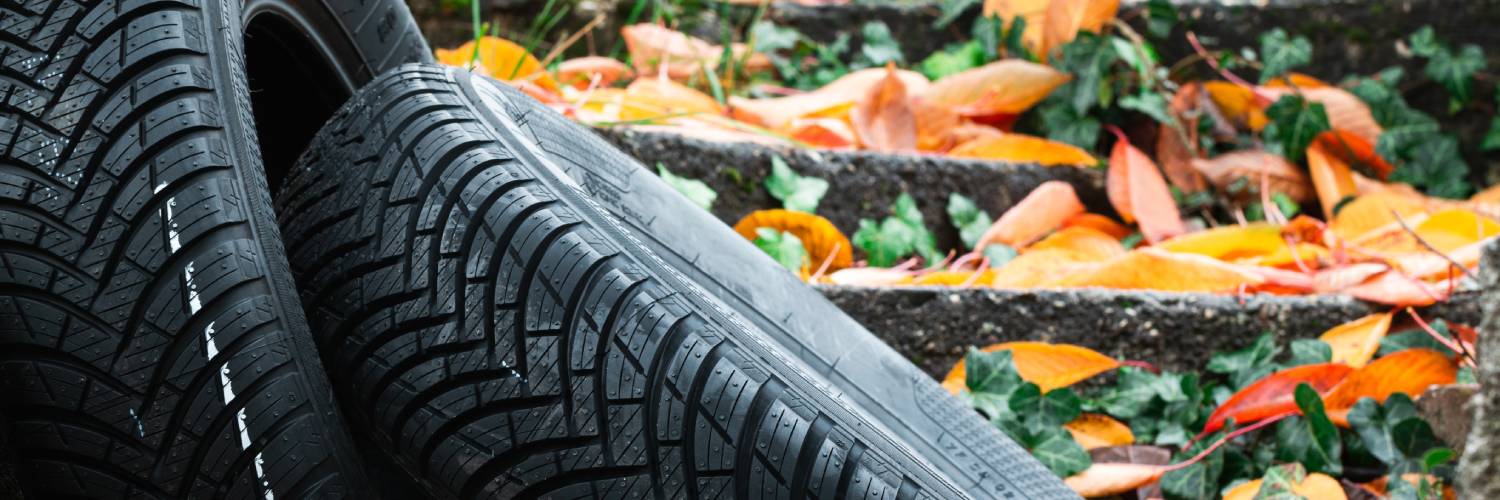All Season Tires in Drayton, ON

Think about where you will be driving and how often. If you have an SUV that needs to drive smoothly in town but must also go off-road regularly, you’ll need a tire brand that is more suited for all-terrain with the best traction rating and tread-wear warranty. Or perhaps you drive a passenger car that spends almost all its time in an urban environment? In this case, you might want to focus more on braking capabilities, fuel efficiency and hydroplaning performance.
A Detailed Guide to All-Season Tires
Typically, all-season tires refer to the combined form of summer and winter tires that gives your vehicle extra strength. These tires fall under the hybrid category. Nonetheless, if you live in a region with mild weather, you might consider sticking with all-seasons. However, they are still not a good choice because you may lose some grip in warmer weather, and the rubber compound may harden in the winter.
Are All-Season Tires Good for Rain?
The advantages of summer and winter tires are combined in all-season tires. However, to maintain their signature well-roundedness, all-season tires sacrifice some characteristics for more extreme conditions such as heavy rain, snow, or significant road icing.
When driving in the rain, winter tires outperform all-season tires, but only if temperatures are between 0 and 7 degrees Celsius (32-45 degrees Fahrenheit). All-season tires are becoming the better option in higher temperatures. This is because the rubber in most all-season tires hardens below 7 degrees Celsius (45 degrees Fahrenheit), causing it to be slippier above that temperature.
Important factors to keep in mind when buying all-season tires for your vehicles in Drayton, ON
All-season tires are meant for use for most of the year. Knowing the appropriate tires for various vehicles and regions can foster road and passenger safety. With all-season tires, you will be confident in a mix of conditions and terrains. They are suitable for most vehicles, from minivans to SUVs to sedans. Some factors to keep in mind when purchasing are:
Tread Pattern
All-season tires come in three tread kinds: Asymmetrical, Symmetrical and Unidirectional. Because of their groove patterns, symmetrical all-season tire treads last longer. These tires wear down evenly, allowing their tread life to last longer.
Asymmetrical tread patterns are more commonly found in muscle cars and sports cars. This is due to the asymmetrical patterns having a more durable grip when driving at higher speeds.
Unidirectional treads are standard on most vehicles and are designed to move in a single direction. They must be rotated more frequently than the others to avoid premature wear.
When shopping for all-season tires, consider the tread patterns based on your needs and your vehicle type.
Tire Size
Tires for various vehicle sizes are assembled to provide effective results. You must consult your owner’s manual to determine the appropriate size for your vehicle. You can also go to an online size checker to get it by searching in a database. If the tire is an OEM (original equipment manufacturer), the tire size is printed on the sidewall.
Shock absorption
Driving on tires that provide adequate shock absorption is an excellent way to maintain your vehicle and have an enjoyable riding experience. Your vehicle may be damaged if it lacks shock absorption capacity.
Tires that can absorb the harsh bumps in the road will provide a smooth ride and keep you from being bounced around and last longer. Tires will soften the impact of riding on bumpy roads if well-designed.
High Durability
The best way to consider durability is to consult your vehicle’s warranty to confirm the maintenance demands provided by the manufacturer. Tires need to be rotated often, but if the tire’s rubber is of high quality and the tread is even, the tire will be more durable and last much longer.
Advantages & Disadvantages of All-season Tires
All-season Tires have the following Advantages and Disadvantages:
Pros
- Economic: no change every season
- A good compromise between winter and summer tires
Cons
- Less efficient on icy roads
- Overconsumption of fuel
- Noisier tires
- Rapid wear
- Longer braking distance
- Higher purchase price
How long should all-season tires last in Canada?
Well, it’s harder to say, but in Canada, a tire’s useful life is about 10 years, according to most tire manufacturers. However, some experts recommend having them inspected and considering replacement at six years. Tire age matters because the rubber starts drying out over time, causing it to harden and lose its grip.
Explore True Auto Care to Buy the Best-Quality All-season Tires in Drayton, ON
Our name says it all: True Auto Care in Drayton, ON. Our goal is to provide the best automotive service and repair experience possible, with honesty, integrity and quality. We want to build a relationship with you for long-term trust in keeping your vehicle safe and reliable.
One way to achieve that is by offering you a well-laid-out regular maintenance plan to keep your vehicle in top running condition. We recommend having a yearly vehicle inspection (which includes 90+ tests) performed on your vehicle so we know the ins and outs of your car, van or truck. This allows us to work with you to schedule the required work, or maintenance, within a time frame that works for you.
Contact us today to discuss tires for your vehicle.

